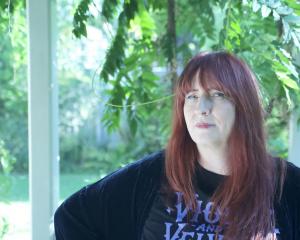
Anita Leslie was an Irish-born biographer and first cousin once removed of wartime Prime Minister, Sir Winston Churchill.
Train to Nowhere, first published in 1948, was considered the best book about World War 2 written by a woman; a somewhat dubious compliment.
However, it is possible the inherent chauvinism of the time was tempered by Princess Elizabeth's marriage to the Duke of Edinburgh the previous year and the fact that the princess had herself been active in the wartime Auxiliary Territorial Service (ATS), where she learnt to change a wheel, disassemble and rebuild engines, and drive ambulances and other vehicles.
During the first winter of WW2, Leslie's brothers and most of her friends were in active service.
Leslie volunteered in the Mechanised Transport Corp (MTC) to escape her tangled personal life, though the latter is not brought up in this memoir.
The MTC was an organisation favoured by upper-class young women.
Before it was incorporated into the ATS and later, in Cairo, its work involved tending to the wounded in heat and discomfort.
Whatever the achievements of the service, Leslie writes, "the tendency of male authorities was always to scoff and keep first-rate women subordinate to second-class men''.
Leslie writes that, before leaving for the Middle East, her last day in London was rendered "hideous'' because her tailor's "button-holding machine'' had been destroyed by a bomb, leaving her uniforms incomplete.
Not wanting to be stuck in Egypt, she joined the Trans Jordan Force where she was tasked with editing a newspaper, the Eastern Times, and delivering hospital supplies.
The Eastern Times was hand-set by 15 Arab boys, none of whom could read a word of English. If a line of type got dropped, it was reset by guesswork, proofs being corrected by an 82-year-old missionary.
After the paper was published and delivered, Leslie says she was invariably questioned as to why, for example, headlines were back to front and photographs upside down.
To achieve more, Leslie joined the French Forces; the British Army did not allow women on the front line. She became "un simple soldat de zeme classe''. And, as a front-line ambulance driver in the 1st French Armoured Division, she played a vital part in the liberation of France.
Train to Nowhere was dedicated to her commanding officer of the time, Jeanne de l'Espee.
In the fierce fighting around Vosges, which lasted two months, Leslie got her wish to achieve more. The French suffered heavy casualties, taking just 4500 prisoners and 60 cannon.
Leslie lived through fighting in blinding snowstorms and the loss of two regimental doctors and a paramedic.
The push into Germany was a melee of some German soldiers surrendering and others retreating. In the confusion, two sisters, paramedics Lucette and Odette Lecoq, mistaking retreating Germans for those surrendering, were shot, despite their ambulance prominently flying a Red Cross flag on the bonnet. The sisters were buried with full military honours and Leslie also devoted Train to Nowhere to their memory.
Leslie was in Germany when the German army surrendered, and saw first hand the horrors of an extermination camp. She also witnessed the Berlin Victory Parade, lunched with Churchill and wrote home on Adolf Hitler's notepaper, given to her by a Russian officer who had souvenired it.
Train to Nowhere is a remarkable and candid account of the five-year fight with the Nazis. It is written in a dry, laconic style by an author who was at the centre of the action she sought and never far from danger.
Ted Fox is an online marketing and social media consultant.
Comments
Lest we forget, dry and laconic was the style of wartime, along with 'keep calm and carry on'. Rarely hysteria, even in the face of tragedy. Remarkable, brave, with the Right Stuff, upper class women deserved better than male toerags as commanders.
Salute.













